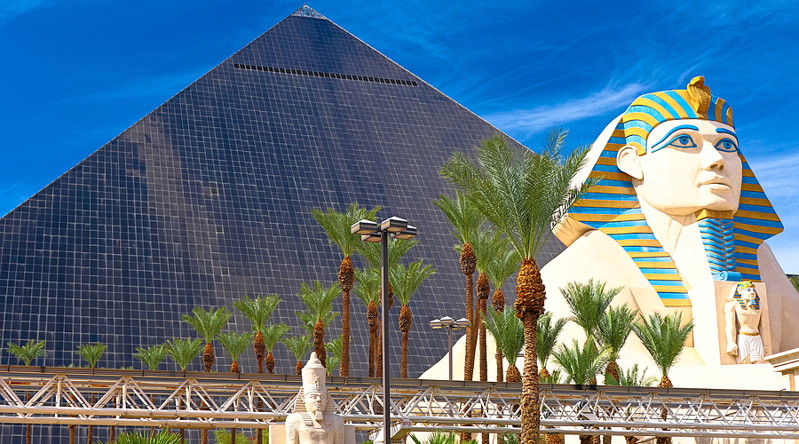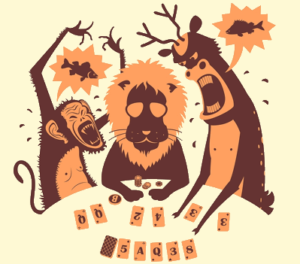 Gambling is often seen as something of a hot topic, criticised by those that don’t like it as something that can do people irreparable harm. There are certainly those that would ban gambling in all of its forms if they had the option and opportunity to do so. Even as things stand there are plenty that would have it become akin to smoking or doing drugs and seen as being something to be rejected by polite company, even drawing links between them.
Gambling is often seen as something of a hot topic, criticised by those that don’t like it as something that can do people irreparable harm. There are certainly those that would ban gambling in all of its forms if they had the option and opportunity to do so. Even as things stand there are plenty that would have it become akin to smoking or doing drugs and seen as being something to be rejected by polite company, even drawing links between them.
Yet does that too readily dismiss the links between gambling and human nature? Is there an argument that some people are prone to gamble regardless? Someone driving and speeding up to make it through the lights before they turn red is gambling, after all; it’s just that they’re not gambling for money or entertainment purposes so it isn’t viewed with the same sense of disdain. Is the act of gambling just part of being human?
Problem Gambling Is A Problem
 One of the chief objections of those that don’t like gambling and wish it was more controlled is that people can develop a problem with it. This is unquestionable, with those that struggling with their compulsions getting themselves into financial difficulties, often by betting more than they can afford to lose. Not everyone who gambles has a problem, however, which is where it becomes something of a troublesome topic.
One of the chief objections of those that don’t like gambling and wish it was more controlled is that people can develop a problem with it. This is unquestionable, with those that struggling with their compulsions getting themselves into financial difficulties, often by betting more than they can afford to lose. Not everyone who gambles has a problem, however, which is where it becomes something of a troublesome topic.
According to the Gambling Commission’s 2016 research, there were as many as 340,000 problem gamblers in the United Kingdom. The report came up with a list of statistics that pointed towards certain people being more likely to have a gambling problem than others, though of course it wasn’t finite in identifying problem gamblers. The report came to the following conclusions about the sport of people that might have a gambling problem:
- Significantly more likely to be male than female
- Those that were in work, studying or had retired were less likely to be problem gamblers than the unemployed
- Men were likely to be aged between 25 and 34
- They were more likely to be black or minority ethnic than white or Asian
- Those with signs of having poor mental health were more likely to develop a problem with gambling
- Likely to show signs of a low wellbeing
The reasons why some people become addicted to gambling and others don’t aren’t exactly clear, but it’s likely to be down to reward pathways in the brain that change behaviour – liking something and wanting something. The notion of wanting something and liking it are no longer linked in problem gamblers, with the addiction leading to them repeating the behaviour that they want to get that associated reward.
Humans Have Always Gambled

Whilst acknowledging that problem gambling is a genuine issue and something that needs to be monitored, it’s also important to note that gambling in one form or another has been around as an actively almost as long as humans. There is some evidence that gambling took place in 2300 B.C., so the notion that it is a modern phenomenon is a false one; after all, dice were found in Egyptian tombs from 3000 B.C.
It’s also important to get away from the idea of gambling being solely about money. If a child wants something and senses that there’s a chance that they can get it, they will gamble that crying and whingeing will present them with a great chance of getting it. There might well still be a ‘prize’ at the end, but it’s not always a financial one. Those people speeding to get through the lights don’t get money, but they do get a reward.
Even something like eating too much of the wrong sort of foods or drinking too much alcohol is a form of gambling – we know that it’s wrong but we do it anyway because we judge the reward to be worth the risk. Perhaps gambling in and of itself isn’t human nature, but risk-taking certainly is. We feel excited when we take risks, with the natural high gained from winning a bet similar to other such stimulants.
Gambling in all of its forms is seen a low-risk, high-yield proposition and, in some senses, that is correct. Someone that bets £2.50 on the EuroMillions could win hundreds of millions of pounds in return, making it the definition of a low-risk but high-yield event. On the other hand, the odds will always favour the House, meaning that the chances of losing our stake in any given bet is always extremely high.
Why People Gamble
 There are numerous reasons why people gamble. When it comes to gambling over things such as our health or our well-being when going through a light that is on amber, we judge that there is a decent reward we’re getting in exchange for the risk that we’re taking. When it comes to gambling for money, however, there are different reasons that need to be taken into account, starting with the idea of escapism.
There are numerous reasons why people gamble. When it comes to gambling over things such as our health or our well-being when going through a light that is on amber, we judge that there is a decent reward we’re getting in exchange for the risk that we’re taking. When it comes to gambling for money, however, there are different reasons that need to be taken into account, starting with the idea of escapism.
Whether we find ourselves in a smart-looking casino or sat at home on the computer using an online casino, they both offer us a chance to escape the run-of-the-mill lives that we normally lead. For some, the fact that it is made to looking glamorous and exciting in the news and in films and so on will also be an appealing part of the process. Gambling is also a social thing to do in many cultures, which adds to its appeal.
Mainly, though, it comes back to the idea of risk taking being an inherently human thing to do. Whether it be the excitement of wondering whether the team that you’ve bet will win the match, your balls will come up or doing 35 miles-per-hour in a 30 zone, there’s a natural high that comes with experiencing such a thing and it can get to the point that some people feel as though they can’t live without it.
Even Monkeys Do It
 The question that this article poses is whether gambling is part of human nature. One of the ways that we can decide upon the answer to this is by looking at monkeys, a species that is similar enough to us to inform us about our own psychological make-up. When Tommy Blanchard reported on an experiment by the University of Rochester in New York State, he discovered that monkeys act in the same way as humans when gambling.
The question that this article poses is whether gambling is part of human nature. One of the ways that we can decide upon the answer to this is by looking at monkeys, a species that is similar enough to us to inform us about our own psychological make-up. When Tommy Blanchard reported on an experiment by the University of Rochester in New York State, he discovered that monkeys act in the same way as humans when gambling.
When monkeys were engaged in a gambling game, controlling a computer display by moving their eyes, they did the same thing as humans and believed in the hot hand fallacy. They were given a 50:50 choice of two things, earning a reward when they picked one of them. They soon developed a tendency to select the option that had been a winner previously, as if they thought it should win again.
Monkeys don’t get probability as a concept, not being taught it as a youngster in the same way that humans are in school. Instead, their choices are based on primitive instinct, given that they lack the ability to have irrational false believes in how luck works out. It is likely that it is beneficial to behave in a manner that suggests something will continue, with chains of success, just as with failure, typically linked together.
In some ways, it is linked to Pavlov’s experiment with dogs. Every time the bell rang they got fed, so why shouldn’t they assume that they’d be fed the next time the bell rang? Bettors got a reward the last time they bet on red, so repeatedly betting on red makes sense. We know it won’t stay red forever, but it might carry on long enough for us to get a few more rewards and to feel better when we do.
Black Markets Exist

One of the other arguments for humans having it as an instinct is the existence of black markets in countries were gambling is illegal. There are plenty of countries around the world where gambling has never been allowed, or has been banned for centuries. It is often the case in the stricter countries that are governed more by religious philosophy than by a desire to do what is right for the majority of the population.
Despite most people in said countries never having known gambling in any real form, there still exist black markets that allow those that wish to to engage in it as an activity. Why would someone who has never gambled in their life nor known what it is want to get involved with gambling that they know is against the law, if not because of some human instant that is drawing them towards it?
Whilst it’s more understandable that a black market would exist in the United Kingdom to allow people to bet on things that they’re not allowed to with traditional bookmakers, it’s less easy to understand in more strict environments. It is difficult to argue against the idea that it’s because humans instinctively want to enjoy the rush that comes with betting, as well as the possible rewards of seeing a winning bet come in.
The Counter-Argument
 There is, of course, a solid counter-argument to the idea that gambling is a part of human nature. Indeed, there are those that would argue that there is no such thing as a natural-born gambler. Those that would put forward this argument point to the fact that gambling didn’t exist in the likes of South America, New Zealand, Australia and the Pacific Islands as recently as 150 years ago.
There is, of course, a solid counter-argument to the idea that gambling is a part of human nature. Indeed, there are those that would argue that there is no such thing as a natural-born gambler. Those that would put forward this argument point to the fact that gambling didn’t exist in the likes of South America, New Zealand, Australia and the Pacific Islands as recently as 150 years ago.
In the case of Papa New Guinea, gambling wasn’t introduced until the 1950s, meaning that it surely can’t be declared to be a natural human trait. The idea is that there is nothing innate about gambling that means that it will naturally bubble to the surface eventually, regardless of whether those being looked at faced greater risk in their lives or not. It’s interesting to note that those late the gambling scene often become problem gamblers.
This seems to suggest that the desire to gamble may not be present in every person but the idea of enjoying it to such an extent that it takes over almost certainly is hard-wired. Gambling might not be something that is in our genes, but that doesn’t mean that some people don’t have a predisposition to become dependent on it once it has been introduced to their lives, for whatever reason.
Instead of gambling being something that all humans do, it is believed by some that it is having money that leads people to gamble. This might fly in the face of the idea that problem gamblers tend to be unemployed, but it’s likely that being able to either access or direct money by gambling was the reason behind taking part in gambling. Anthropologists believe that money needs to be easy to hide, easy to spend and easily hidden.
Gambling is also encouraged in societies where there is a huge sense of inequality. In the world of gambling, players can go head-to-head over money and winning can change the lives of both in different ways. Those that are generally poor are more likely to gamble because they see it is a way of making it out of one societal situation in to a better one, regardless of the actual logic of that way of thinking.
Is there an argument that we think gambling is part of human nature because it is in the interests of betting companies to have us thinking that way? It’s certainly a possibility, though even ignoring the idea of those in Papa New Guinea not gambling for financial game until late on, it’s difficult to argue that they wouldn’t have gambled in other ways during the same period. We are all natural bettors, whether it be with money or with decisions that we make to better ourselves.
